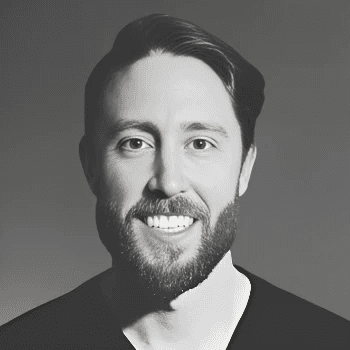Ben Doctor
We live in a professional culture obsessed with preparation. The belief that “ready” is some magical state we need to achieve before beginning a project has become a pervasive myth. It’s a myth that costs us time, energy, and, most importantly, the momentum needed to actually make progress.
Too often, we confuse planning with progress. We lay out meticulous roadmaps, craft elaborate strategies, and convince ourselves that once every variable is accounted for, we’ll finally be ready to start. But here’s the truth: readiness is an illusion. Waiting to feel ready isn’t just procrastination—it’s a stall tactic that masks our fear of imperfection.
Momentum beats mastery
The irony is that the moment you start is when the real learning begins. You don’t need perfect conditions to get started; you need motion. Momentum has a way of pulling you forward, teaching you what matters and what doesn’t as you go.
Think about it: when you start anything—whether it’s writing a book, designing a product, or even assembling IKEA furniture—you rarely end up following your original plan exactly. The plan evolves. The process reveals truths that no amount of preparation could have uncovered. Starting isn’t just a step in the process; it is the process.
The problem with over-planning is that it puts all the value on the prelude. You spend so much time imagining how something should go that you forget the only thing that really matters is how it does go. And you won’t know that until you do the work.
Why we fear the start
If starting is so important, why do we avoid it? Because starting exposes us. It forces us to confront the gap between our aspirations and our abilities. It’s easier to stay in the safe space of theorizing and planning than to risk the embarrassment of imperfection.
But here’s the catch: the longer you delay starting, the higher the stakes feel. You’ve invested so much time in planning that you’re now terrified of being wrong. Starting earlier, when the stakes are lower, is how you sidestep this trap.
In fact, starting early changes the entire equation. It shifts your mindset from “I need to get this right” to “Let’s see what happens.” That shift is liberating. It turns starting into a discovery process instead of a high-pressure performance.
The myth of perfect execution
The world doesn’t reward perfect execution; it rewards meaningful impact. And meaningful impact often comes from iteration, not precision. Waiting for the perfect plan assumes that the value of your work is in the plan itself. It’s not. The value is in what you create, and the only way to create something is to begin.
This isn’t an argument for recklessness or abandoning preparation altogether. It’s about recognizing that no plan survives contact with reality. Your first draft won’t be your final draft. Your first attempt won’t be your best attempt. That’s not failure—it’s progress.
Permission to stop
One of the most underrated benefits of starting is that it gives you clarity about whether something is worth pursuing at all. You can only theorize for so long before you need to test your assumptions. Starting allows you to decide with confidence: Is this worth finishing?
And if it’s not, that’s okay. Stopping isn’t failure; it’s a sign that you’ve learned something valuable. You’ve saved yourself from sinking more time into something that isn’t working. Sometimes, starting is the best way to know when to stop.
Start small, start now
The key to starting is to lower the bar. Too many people delay because they think starting means committing to a massive, unchangeable effort. But starting small is not only less intimidating—it’s more effective.
Pick the simplest version of what you want to do, and do that. Write one paragraph, not a chapter. Build a prototype, not a product. Send one email, not a marketing campaign. Small starts build momentum, and momentum creates results.
Progress without permission
The obsession with readiness is a form of permission-seeking. We wait for external validation, for the stars to align, or for someone to tell us, “Okay, now you can begin.” But no one is coming to give you that permission. You have to give it to yourself.
Starting isn’t about being ready. It’s about being willing—willing to try, to fail, to learn, and to adjust. The sooner you start, the sooner you’ll discover what’s possible. And isn’t that why we’re here in the first place?
So stop waiting. Start before you’re ready. Start small. Start now.
Ben Doctor is the founder of Canvas of Colors, where he helps teams cut through the noise and focus on building great products that matter. With a background in executive roles across user experience, product strategy, and user research, Ben has spent his career simplifying complex challenges and empowering teams to focus on what really matters—creating impact through great user experiences. He's passionate about stripping away unnecessary processes so teams can do their best work with clarity and confidence.
Delightfully infrequent, but intentional—stay sharp with straightforward guides, new ideas, updates, and community stories that matter. 📥
Made with ❤️ in San Diego, CA
Copyright © 2024 Canvas of Colors LLC. All rights reserved.
